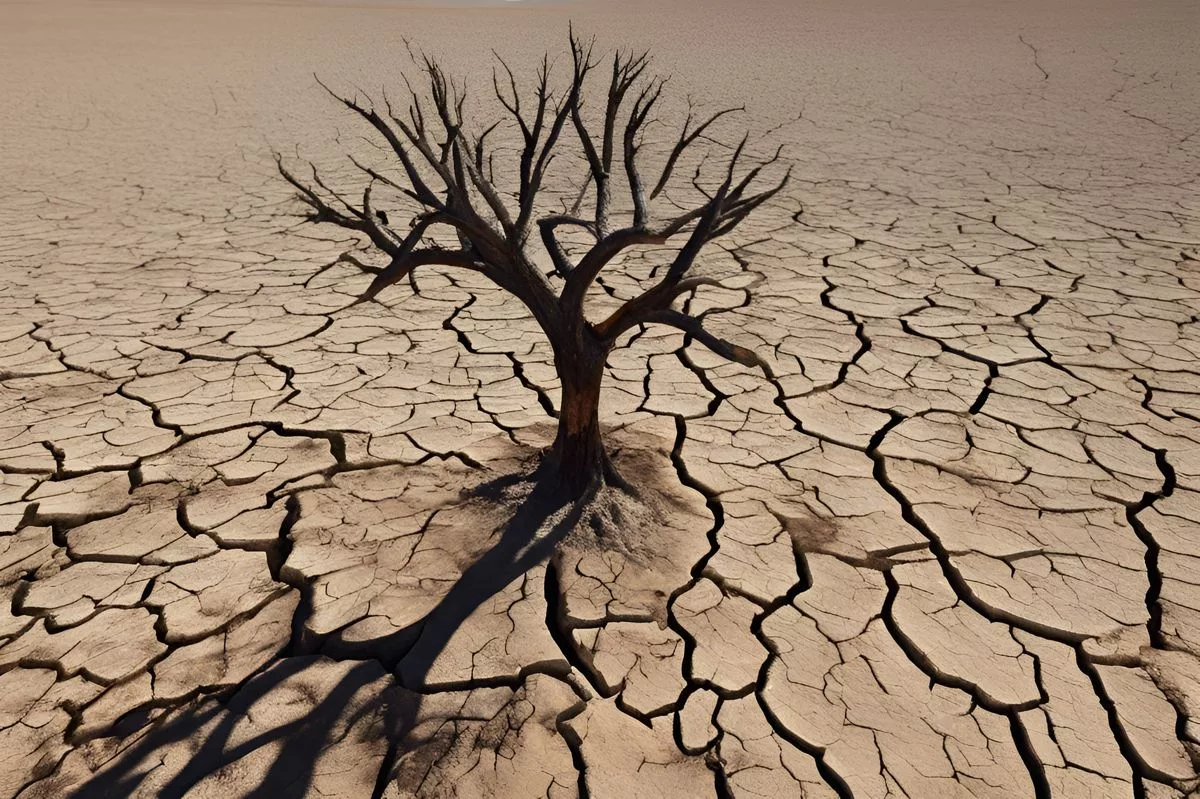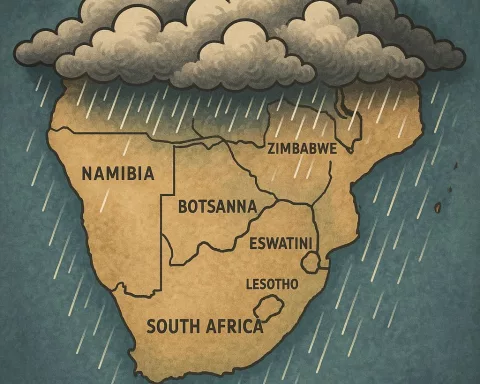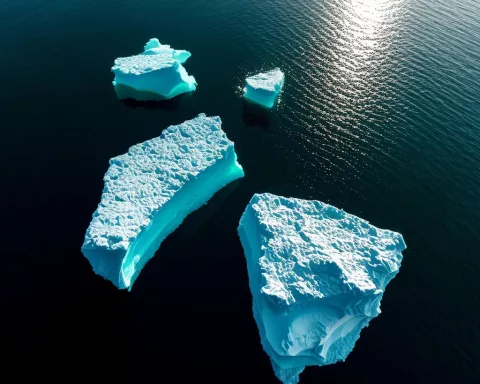Dion George, a prominent figure in South African politics, addressed critical environmental issues at the African Ministerial Conference on the Environment (AMCEN). He emphasized the devastating effects of drought on vulnerable communities, the necessity for a consensus to address drought, and the importance of innovative financial resources to achieve sustainable development goals. He also highlighted the urgent need to address pollution, particularly plastic pollution, and proposed a legally binding instrument tailored to Africa’s unique conditions.
What environmental issues did Dion George address at AMCEN?
Dion George tackled critical environmental issues at the 10th Special Session of the African Ministerial Conference on the Environment (AMCEN). He discussed the impact of climate change, the importance of preserving biodiversity, and the urgency for sustainable development practices. He also highlighted the disproportionate impact of drought on vulnerable communities, the need for a consensus to address drought and its funding mechanism, and the importance of innovative financial resources and investment products to achieve sustainable development goals.
Dion George, a notable personality in the political realm of South Africa, recently made a powerful statement at the commencement of the 10th Special Session of the African Ministerial Conference on the Environment (AMCEN). George adeptly tackled a variety of critical environmental issues, using his unique eloquence and deep understanding of environmental complexities. Topics discussed included the impact of climate change, the importance of preserving biodiversity, and the necessity for sustainable development practices.
Drought: A Creeping Disaster
Held in the vibrant and beautiful city of Abidjan, the session was underscored by a clear sense of urgency. This was particularly evident in George’s grave concern over the frequent and intense droughts largely induced by climate change. As a slow-moving environmental disaster, drought doesn’t just interrupt natural ecosystems. It also represents a considerable risk to socio-economic stability as it triggers a ripple effect of food and water scarcity, poverty, hunger, and displacement.
However, the tragic implications of drought don’t affect all countries equally. George highlighted with deep concern that it disproportionately impacts vulnerable communities in the region. He referred to scientific studies that have estimated that the economic damage caused by drought amounts to billions of dollars every year. This staggering figure clearly highlights the need for swift and effective action.
Despite the existence of early warning and monitoring systems, Africa’s fight against the effects of drought is proving difficult. Responses to drought across the continent have often been reactive and poorly coordinated, leading to considerable negative impacts on Africa’s economy, society, and biodiversity. George’s push for a consensus at the imminent UNCCD COP 16 to adopt a policy instrument addressing drought and its funding mechanism, demonstrates his proactive approach and vision.
Towards Sustainable Development
South Africa’s multi-sectoral programmes, which blend biodiversity conservation into socio-economic development, offer a hopeful answer to these environmental problems. These initiatives range from the Land Care programme, to alien invasive species removal, and restoration of degraded landscapes. These reflect South Africa’s dedication to sustainable development.
The commitments made under the Rio Conventions also play a significant role in this environmental narrative. These include targets for Land Degradation Neutrality under the UNCCD, Global Biodiversity Framework targets under the UNCBD, and Nationally Determined Contributions under the UNFCCC. George accurately urges developed countries to meet their financial obligations in support of Africa’s sustainable development goals.
However, the obstacles associated with funding and resource mobilisation are substantial. George insists on the necessity to explore innovative financial resources and investment products, which could potentially contribute to achieving the ‘Africa We Want,’ as outlined in Agenda 2063. The implementation of the Kunming-Montreal Global Biodiversity Framework, aimed at halting biodiversity loss and promoting recovery, is a clear representation of this.
Advanced Technologies and Science in Conservation
In addition to these general environmental concerns, George underscores the need for a dedicated fund for biodiversity conservation. He also stresses the importance of a multilateral benefit-sharing mechanism for digital sequence information, highlighting the role of advanced technologies and science in preserving functional ecological infrastructure and rehabilitating degraded ecosystems.
For future AMCEN sessions, George proposes focusing on pollution, particularly those related to chemicals and waste management. He draws attention to the urgent issue of plastic pollution and its effects on human health and biodiversity, underscoring the necessity for a legally binding instrument tailored to Africa’s unique conditions.
The economic implications of this proposed instrument are significant, warranting a dedicated fund to support the anticipated globally binding measures, aligned with the Just Transition approach. In articulating this, George not only acknowledges the magnitude of the problem but also presents a clear roadmap towards a sustainable solution.
The address by Dr Dion George at the 10th Special Session of AMCEN served as a poignant reminder of Africa’s environmental challenges. Yet, it also offered testament to the proactive steps being taken to address these issues. His profound understanding of these complex problems, coupled with his commitment to sustainable development, resulted in a clarion call to action. A call that resonates beyond the stunning city of Abidjan and reverberates throughout the African continent.
What is the impact of drought on vulnerable communities in Africa?
Drought, induced largely by climate change, represents a considerable risk to socio-economic stability as it triggers a ripple effect of food and water scarcity, poverty, hunger, and displacement. Vulnerable communities in the region are disproportionally impacted by the tragic implications of drought, and scientific studies have estimated that the economic damage caused by drought amounts to billions of dollars every year.
What is South Africa’s approach to sustainable development?
South Africa’s multi-sectoral programmes blend biodiversity conservation into socio-economic development, which offers a hopeful answer to environmental problems. These initiatives range from the Land Care programme to alien invasive species removal and restoration of degraded landscapes. Additionally, commitments made under the Rio Conventions play a significant role in this environmental narrative, including targets for Land Degradation Neutrality under the UNCCD, Global Biodiversity Framework targets under the UNCBD, and Nationally Determined Contributions under the UNFCCC.
What financial resources and investment products are needed to achieve sustainable development goals?
Dion George highlights the necessity to explore innovative financial resources and investment products, which could potentially contribute to achieving the ‘Africa We Want,’ as outlined in Agenda 2063. The implementation of the Kunming-Montreal Global Biodiversity Framework, aimed at halting biodiversity loss and promoting recovery, is a clear representation of this.
What is the role of advanced technologies and science in conservation?
Dion George stresses the importance of a dedicated fund for biodiversity conservation and a multilateral benefit-sharing mechanism for digital sequence information, highlighting the role of advanced technologies and science in preserving functional ecological infrastructure and rehabilitating degraded ecosystems.
What environmental issue did Dion George propose to focus on in future AMCEN sessions?
Dion George proposes focusing on pollution, particularly those related to chemicals and waste management, in future AMCEN sessions. He draws attention to the urgent issue of plastic pollution and its effects on human health and biodiversity, underscoring the necessity for a legally binding instrument tailored to Africa’s unique conditions.
What is the significance of a legally binding instrument tailored to Africa’s unique conditions?
The economic implications of the proposed instrument are significant, warranting a dedicated fund to support the anticipated globally binding measures, aligned with the Just Transition approach. In articulating this, George not only acknowledges the magnitude of the problem but also presents a clear roadmap towards a sustainable solution.












